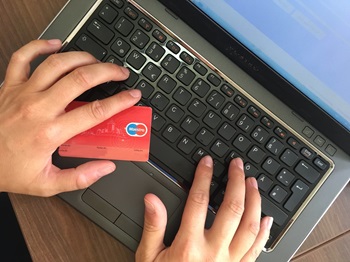By Doug Baker, Vice President, Industry Relations, FMI
 As explored in our U.S. Grocery Shopper Trends 2021 report, based on research conducted by the Hartman Group, several factors drove the increase in online grocery shopping during the pandemic. Among those factors, we’ve identified shoppers’ desire for convenience and personalization as two factors which present increased sales potential for food retailers and food brand manufacturers.
As explored in our U.S. Grocery Shopper Trends 2021 report, based on research conducted by the Hartman Group, several factors drove the increase in online grocery shopping during the pandemic. Among those factors, we’ve identified shoppers’ desire for convenience and personalization as two factors which present increased sales potential for food retailers and food brand manufacturers.
Our research identified, a cohort of consumers who turned to subscription services and online-only specialty retailers to shop for their specific grocery needs at the beginning and throughout the pandemic. Whether they were purchasing ingredients, food types, sources, or other particularities, consumers sought online shopping options that aligned with their desire for specific needs or preferences. (See page 40 of the Trends report). In fact, within the report, we identified these specialty platforms as a potential threat to traditional grocery, as they are serving precise consumer needs.
However, an opportunity exists which capitalizes on this behavior with a much wider range of shoppers within the grocery sector. This opportunity enables grocers to reestablish or revive repeat purchases through automation to gain shopper loyalty, while securing repeat revenue.
Serving Up Personalization
When shoppers are offered auto-replenishment by retailers’ or brands’ existing ecommerce platforms, consumers set routine grocery purchases to auto-pilot. We’ve learned through work with FMI industry associate partner member Replenium that its auto-replenishment platform generates the ability to tap into existing household routines and preferences.
Imagine a grocery retailer’s ecommerce site featuring a curated auto-replenishment shopping list for categories such as organic products, seasonal grocery products, or grocery items meant to deliver a meal solution. As shoppers set these relevant items to auto-replenish, the retailer secures repeat purchases while providing the shopper with a need-state solution and a sense of personalized outreach.
As grocery retailers continue to activate a wide range of products for auto-replenishment, a vast range of merchandising curation opportunities can be created. Whether customers are motivated by savings, meal-types, ingredients, or seasonal items, curated auto-replenishment merchandising campaigns offer exclusive selection and personalization.
Making it Easy for Online Shoppers
Knowing that many shoppers are not only creatures of habit but also seek paths of least resistance, auto-replenishment aligns with shoppers’ preferences and routines to deliver conveniences that, once established, transform their shopping journey.
Additionally, the machine learning mechanism that is delivered by technology tools, such as Replenium’s Auto-Replenishment Platform, can recommend items that align to behavioral shopping patterns and consumption frequencies. For example, a shopper who is replenishing dairy-free products, like almond milk and dairy-free cheese, may receive a recommendation for dairy-free ice cream. Or a brand-loyal replenishment shopper could receive a suggestion for a different item, flavor or pack size within the brand family to expand coverage of total category needs.
“Data-driven merchandising programs are paramount to a retailer’s success both in-store and online. When a retailer is able to infuse the auto-replenishment service of convenience, while establishing shopper behavioral tendencies, they realize the benefits of delivering shopper-centric solutions,” explained Sharon Kim, Replenium’s Senior Site Merchandiser.
Next Steps for Personalization
In recognition of the advancing demands and sophistication of the grocery shopper, FMI works with and on behalf of the entire industry to advance safer, healthier, and a more efficient consumer food supply chain. With that said, flexibility and innovation in addressing the customer experience is a must.
Join us as we continue the conversation on ecommerce and consumer trends at the upcoming FMItech program, which will be held during the Midwinter Executive Conference, March 28-31, 2022, in Orlando, FL.


 Industry Topics address your specific area of expertise with resources, reports, events and more.
Industry Topics address your specific area of expertise with resources, reports, events and more.
 Our Research covers consumer behavior and retail operation benchmarks so you can make informed business decisions.
Our Research covers consumer behavior and retail operation benchmarks so you can make informed business decisions.
 Events and Education including online and in-person help you advance your food retail career.
Events and Education including online and in-person help you advance your food retail career.
 Food Safety training, resources and guidance that help you create a company food safety culture.
Food Safety training, resources and guidance that help you create a company food safety culture.
 Government Affairs work — federal and state — on the latest food industry policy, regulatory and legislative issues.
Government Affairs work — federal and state — on the latest food industry policy, regulatory and legislative issues.
 Get Involved. From industry awards to newsletters and committees, these resources help you take advantage of your membership.
Get Involved. From industry awards to newsletters and committees, these resources help you take advantage of your membership.
 Best practices, guidance documents, infographics, signage and more for the food industry on the COVID-19 pandemic.
Best practices, guidance documents, infographics, signage and more for the food industry on the COVID-19 pandemic.
